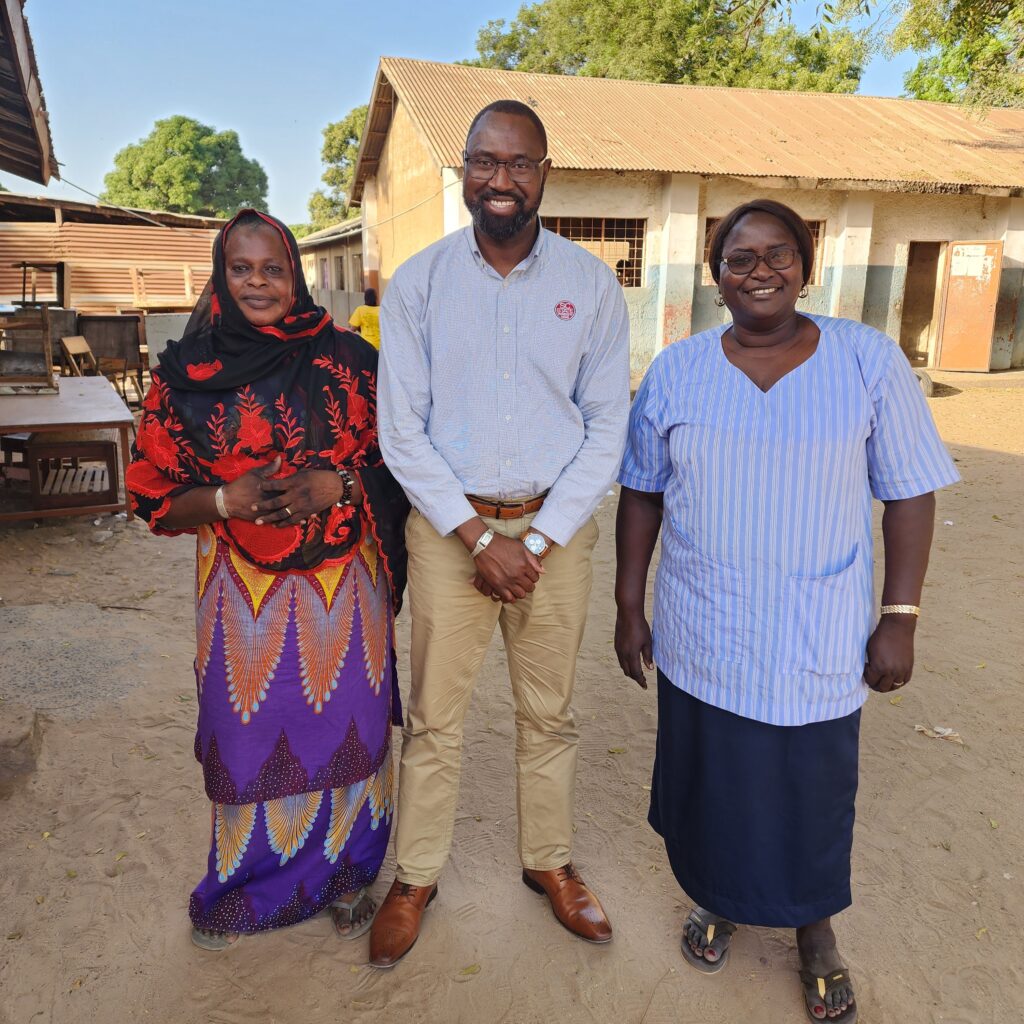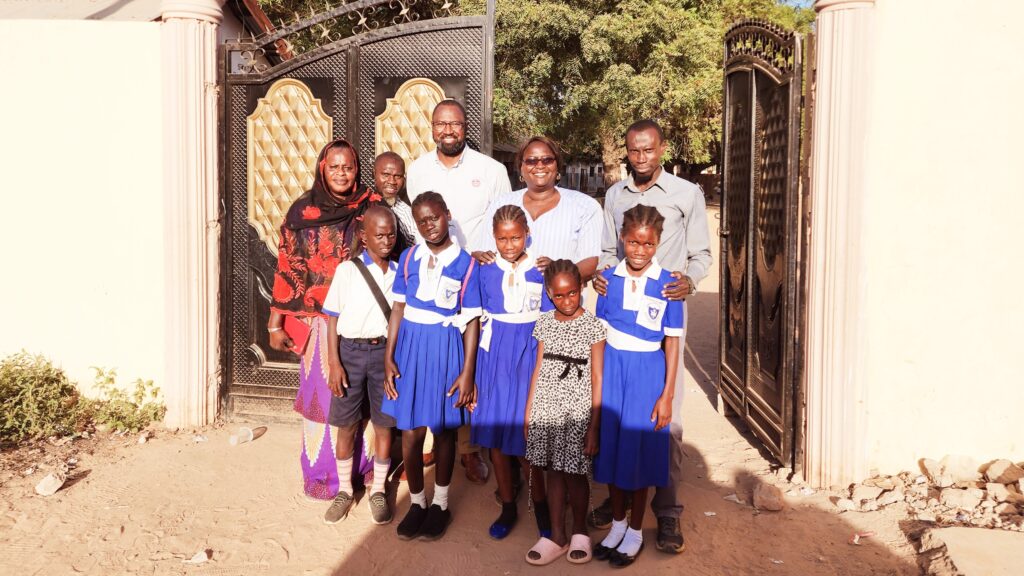
A team of South Carolina State University scientists led by Dr. Lamin Drammeh in collaboration with National Agriculture Research Institute conducted a needs assessment of Gambia’s agriculture sector and food supply chain system from Oct. 6-18, 2021.
Drammeh is associate vice president for public service and agriculture and director of strategic initiatives, evaluation and engagement.
The data for the need assessment was collected by conducting interviews, focus groups, panel discussions, roundtables and town hall meetings. The 198 targeted participants included 64 men and 134 women farmers; 46 national, regional and community leaders; higher education administrators; and extension directors and agents. The Gambian Ministry of Agriculture officials focused their discussions on government vision, strategy, policy and organizational capacities, while farmers and gardeners emphasized production, subsidies, marketing, transportation, storage, value addition, supply chain, and extension service and support. A pre-trip review including policy documents clarifying the multifaceted challenges and opportunities Gambia must confront and address to effect transformational change.
Site visits to three women-owned farms — including a 400-member community garden in the North Bank Region and an innovative “smart farm” in Mayork Village in the West Coast Region of Gambia — concluded the needs assessment.
Gambia has an arable land density of 550,000 hectares, of which 57% is cultivated annually. An increase in land productivity without a corresponding increase in storage, processing, value addition, established markets and supply chain has led to post-harvest losses of up to 30% (NACOFAG 2021). Resource-poor farmers are willing to grow varieties of crops, vegetables and fruit trees, but labor requirements, lack of agriculture financing, limited access to appropriate seed varieties and technical education, and uncertain markets present barriers to increasing production. Lack of reliable markets and value-addition capacities have resulted in tomatoes produced in Gambia being exported, only to return as processed tomato paste. Ninety-five percent of all tomato paste consumed in Gambia is imported.
Investigators identified significant missed opportunities that would have supported the agriculture transformation: production, post-harvesting, marketing, value addition and supply chain. This included providing women farmers with access, control and ownership of farmlands; improving the irrigation system; establishing equipment leasing cooperatives; making available and supplying quality seed crops and seedlings; and providing outreach/extension services to aid farmer effectiveness and efficiency. Additionally, lack of financing and high-interest rates negatively impacted smallholder farmers’ ability to secure and collateralize vital loans to increase productivity or expand their businesses.
The lack of land ownership was listed by women farmers as their biggest challenge, as it undermines their standing as farmers and their ability to contribute sustainability to Gambia’s food production and security posture. Common land-use customs prohibit women from growing fruit trees (mangos, oranges, guava) or timber.
The lack of permanent access to personal farmland by women (who constitute 70% of the farming population) is the biggest obstacle to reforming and transforming Gambian agriculture. The statutory land policy of 2010 under the second Republic provided community-use lands for women to become useful, productive and permanent contributors to national development and personal growth, but the amount of land provided was insufficient. Women farmers face additional challenges — such as poverty-induced lack of collateral, financial means and customary standing to buy land. In communities where a family does not desire to share common land, women are denied the use of farmland. Unless land accessibility is removed as a barrier for women to be farmers of emerging crops, they will operate predominantly in the horticulture industry.

The needs assessment report was formally presented to His Excellency, President Adama Barrow, President of the Republic of Gambia on May 20, 2024, at State House in Banjul. Drammeh discussed the findings and recommendations with the president and his senior advisers. The president expressed his support of integrated policies and strategic frameworks that would facilitate the mechanization of Gambian agriculture.
South Carolina State University scientists recommend the following: develop collaborative strategies with National Agriculture Research Institute to establish demonstration projects in select women gardens and value-addition sites to enhance productivity, profitability and sustainability. Following the formal unveiling of The Gambia Pilot Project Needs Assessment Report and several site visits to rural Gambia, the Illiassa Women Garden Kafo Water Project was approved as a pilot demonstration for future modeling. The project will support 403 female gardeners in North Bank Region. South Carolina State University is also in conversations with the University of The Gambia to develop a partnership in the areas of Food Sciences and Extension Education.

